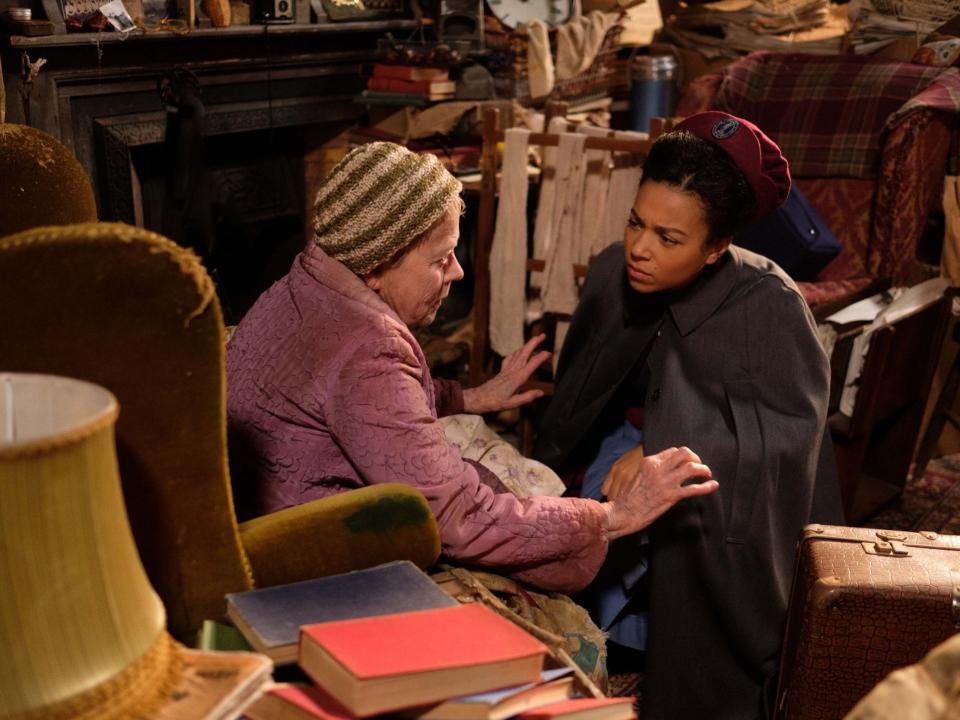Call the Midwife, series 8, episode 2 review: BBC show earns its place as television's comfort blanket
It might be a little too bold to suggest the makers of Call the Midwife (BBC1) possess the powers of precognition, but there’s something oddly fortuitous about this week’s offering from the BBC drama series. After British politics suffered one of its most exhausting weeks in recent memory, Call the Midwife has swept in with the television equivalent of a thick blanket and a cup of cocoa, quieting the discord, at least for an hour, so we can have a breather and recharge.
The second episode provides two narratives that dance around a similar theme: that Britain, when it puts its mind to it, has all the powers it needs to be a place of unity and neighbourly generosity. Firstly, we have the Aidoo family – newly made British citizens with a second child on the way. When Flora (Jessica Kennedy) suffers complications from her pregnancy, there are devastating consequences for the family.
But when the possibility of returning to Ghana is mooted, Flora's husband Joel (Ekow Quartey) says, defiantly, “Home is where our dreams are; for now those dreams are here.”
Meanwhile, Miss Melgrove (Annette Crosbie), an elderly, secretive woman, has become a hoarder in need of Marie Kondo charged up with the powers of Mary Poppins.
However, as her story unfolds, we must ask the far more difficult question of what it means when one can no longer live self-sufficiently, and how it can feel to realise your only choice is to ask for the help of others.
The year is 1964, an era which brought “new energy to medicine” and, on a wider scale, a sense of change in the air. Numerous characters discuss the new faces of the neighbourhood, thanks to a small influx of immigrants into the area, with the Aidoo family among them.s
Yet, such relief is there to wander through this world for a moment, where the talk is of hospitality rather than hostility, as Dr Turner (Stephen McGann) shares his frustration that his medical textbooks no longer reflect the population he serves.
Or to see Lucille (Leonie Elliott) treat Miss Melgrove with such compassion when society so often turns its back on the elderly and in need.
Although there’s much to be said about how determinedly the show swerves around the harsh realities of racism and economic inequality, there’s a different mentality at work here. It’s not a portrait of what Britain was, but what Britain could be – if we had the courage to be kind.
While Call the Midwife has always been guilty of moments of cloying sentimentalism, it’s self-aware enough to know that the duty of being television’s comfort blanket means knowing what people need comfort from. Sometimes that means tackling the hard subjects with a deliberately naive sense of optimism. It seems like we could all do with a break from the real world.

 Yahoo News
Yahoo News 

